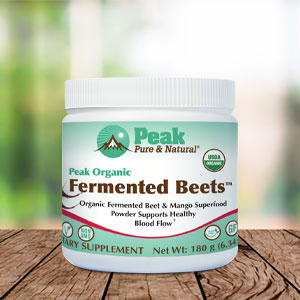If you or someone you know suffers from GERD (chronic acid reflux) or stomach ulcers, you have undoubtedly been prescribed a drug known as a proton pump inhibitor.
Or perhaps you’ve taken an over-the-counter PPI like Nexium or Prilosec.
When I first heard the phrase “proton pump,” I imagined there was a teeny-tiny pump in the body and that these drugs shut the pump down.
Not far from the truth, but not exactly the right visual, either.
In reality, PPIs block an enzyme that produces stomach acid.
But this form of relief may come with a catch, and a dangerous one.
PPIs may be connected to new cases of hypertension
Protein pump inhibitors block an enzyme that produces stomach acid. It’s called the hydrogen-potassium ATPase pump or the “proton pump” for short.
Here’s a good way to understand it: PPIs inhibit (or prevent) the proton pump enzyme from completing a chemical process needed to make stomach acid. By short-circuiting this process, PPIs slow down the production of stomach acid.
You’ll still have enough stomach acid to digest food, just not an overproduction that’ll irritate the stomach.
But no medication acts solely on the part of the body it’s meant for.
While PPIs are at work interrupting acid production, they’re also interrupting an unrelated cycle that converts dietary nitrates from foods you eat into nitric oxide.
Nitric oxide is a natual vasodilator made by the body; it relaxes blood vessels, which lowers blood pressure.
Maybe you can see where this is going…
While PPIs are controlling your acid reflux, they could also be elevating your risk of hypertension.
At least, this was the finding of a study done at the University of Buffalo – SUNY whose primary goal was to evaluate the association between PPI use and new cases of hypertension in menopausal women enrolled in the WHI-OS (Women’s Health Initiative Observational Study).
Out of 64,720 menopausal women, the study found 28,951 new cases of hypertension after a mean follow-up of 8.7 years.
The researchers feel this could be attributable to the reduction of nitric oxide brought on by the PPIs.
You should know this isn’t the first time the safety of PPIs have been called into question. Some have been linked to increased risk of stroke, bone fracture, pneumonia, type 2 diabetes, Clostridium difficile infection and kidney damage.
Non-prescription ways to control stomach acid
Fortunately, some foods are safe remedies for acid reflux. These include olive oil, apple cider vinegar and carob.
And don’t forget herbs and spices!
Turmeric is derived from the root of the Curcuma longa plant. It contains a naturally active compound called curcumin. It’s often used in Indian food.
Studies have shown that curcumin is just as effective as omeprazole (a common PPI) at relieving the symptoms of indigestion, including acid reflux.
Then, of course, there are lifestyle changes that can help control GERD, acid reflux and heartburn:
- Maintain a normal weight.
- Don’t smoke!
- Engage in moderate to vigorous physical activity for at least 30 minutes a day.
- Restrict coffee, tea and sodas to no more than 2 cups per day.
Finally, here are some tips for a diet that could help control acid reflux:
Eat foods that have a higher pH because they are more alkaline and can offset stomach acid. These include bananas, melons, cauliflower, fennel, and nuts.
High-fiber foods can curb overeating, which contributes to GERD. These include:
- Whole grains such as oatmeal, couscous and brown rice.
- Root vegetables such as sweet potatoes, carrots and beets.
- Green vegetables such as asparagus, broccoli and green beans.
Regardless of how you manage or alleviate your symptoms, it’s important to do so. If you develop GERD, the more serious form of acid reflux, you could be at higher risk of developing Barrett’s esophagus, which is a dangerous condition.
Sources:
Proton Pump Inhibitor Use and Incident Hypertension in Menopausal Women — Journal of the American Heart Association
Long-Term PPI Use Linked to Hypertension in Menopausal Women — U.S. Pharmacist
Proton pump inhibitors — Cleveland Clinic
Read full article here




